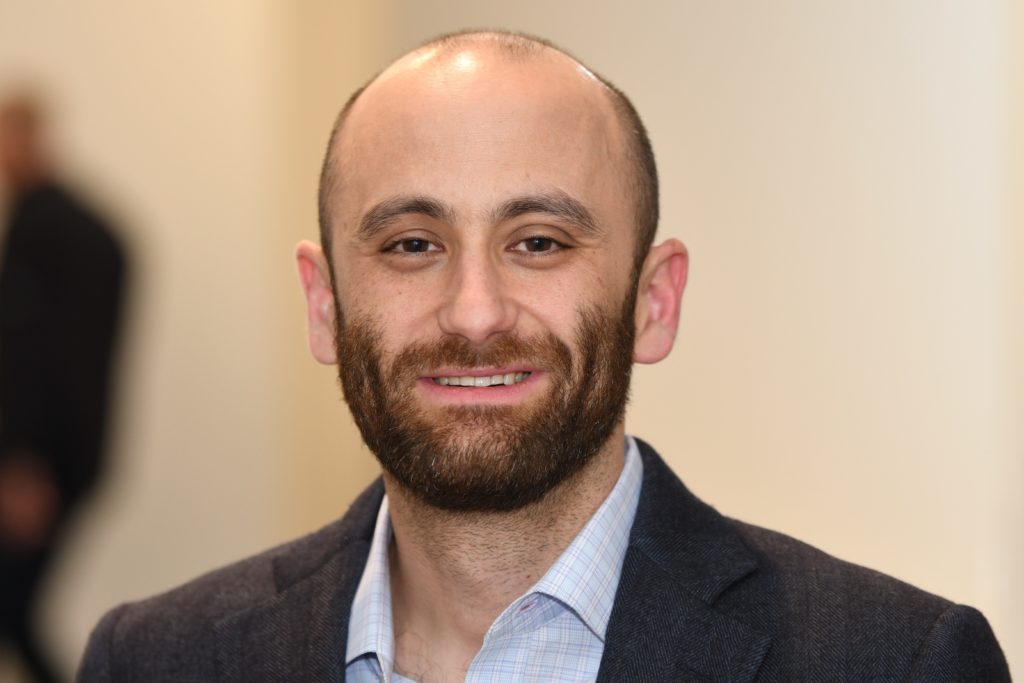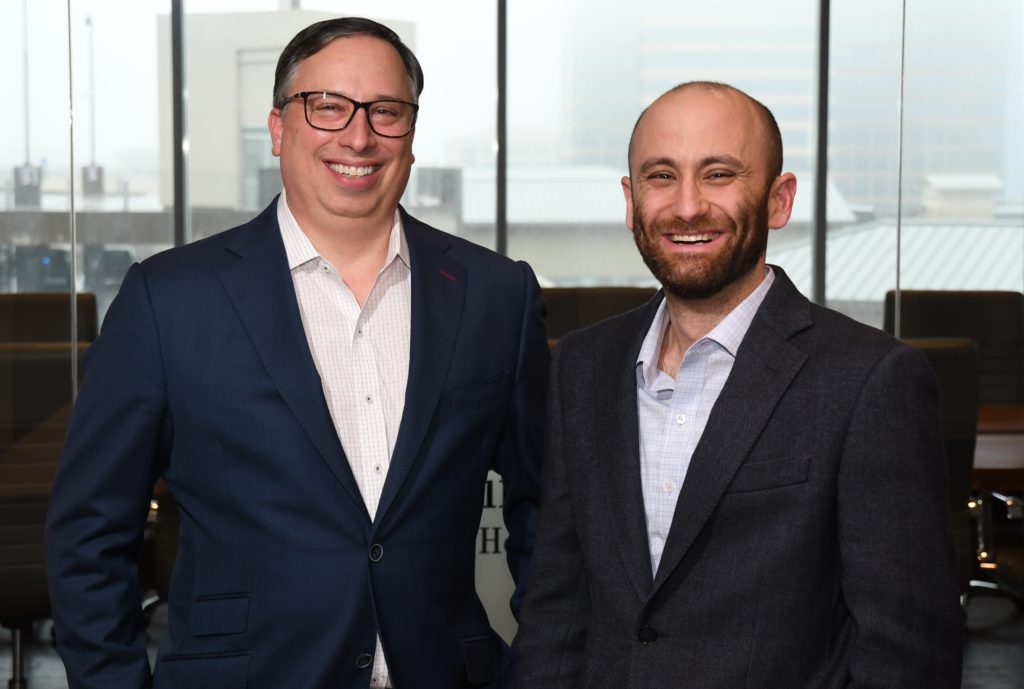
Thanksgiving is typically a holiday for family. That special time was cut a little short for Greg Moundas in November of 2018.
The general counsel of Plano-based hotel operator Aimbridge Hospitality and his team of two lawyers worked over the holiday generating thousands of documents to prepare for the December signing of the company’s sale to Boston private equity firm Advent International.
For three months, the group endured many early mornings, late nights and weekends as the parties negotiated and structured the deal and conducted due diligence, enlisting the help of Weil, Gotshal & Manges partner David Gail in Dallas.
But through all of the activity, Moundas remained cool under pressure and modeled this to his team, which he describes as a close-knit group “who have each other’s backs and enjoy excitement and activity.”
Moundas’ and Weil’s work on the deal earned them a spot as a finalist for the M&A Deal of the Year by the Dallas-Fort Worth Chapter of the Association of Corporate Counsel and The Texas Lawbook. The award will be presented January 30 at the George W. Bush Institute.
The sale – by Aimbridge owners Lee Equity Partners and General Atlantic – was publicly announced in January and closed February 1.
The parties didn’t disclose the deal’s terms, but the number must have been big. The company already was North America’s top third-party hotel operator, managing 800 hotels with more than 100,000 rooms across the U.S., Canada and the Caribbean, including Marriott, Hilton, Hyatt, IHG and Wyndham.
“We’re the most important aspect of a hotel. We hire employees, we set the daily rates, we are running the underlying business.” – Greg Moundas
The Fordham-trained Moundas started his legal career as an associate at Cahill Gordon & Reindel and Proskauer Rose in New York. He went on to be chief counsel for real estate and finance for Wyndham International (he studied economics as an undergrad at Fordham), general counsel at hospitality investment and advisory firm JF Capital Advisors and general counsel for Eagle Hospitality Properties Trust. He became counsel at Aimbridge in 2012 and the company’s top legal officer in 2013.
Moundas began working with attorneys from Weil when Lee Equity invested in Aimbridge and later when General Atlantic came in as part of a recapitalization. But he worked with Gail specifically a few years ago when Aimbridge acquired a business from Starwood and then in 2018 when it bought a hotel lodging portfolio.
“I knew that Weil had a strong Texas office and I asked to have a Texas attorney working with me,” Moundas said. “It felt better to me.”
When General Atlantic began talking about exiting, given Aimbridge’s growth and its expected bump-up in valuation, Moundas enlisted the help of Gail again. The work began in March 2018 and the company hired Moelis & Co. – which had sold other companies in the space – to help it line up potential buyers. General Atlantic wanted to effect a sale quickly with a limited number of investors. The latter they achieved; the former was more difficult.
“You would think our business is very simple,” Moundas said. “But once you get into it, it gets more complicated and it takes time for people to understand the ins and outs and where the risks and the growth opportunities are.”

Aimbridge manages hotels without owning them, so it’s not truly a real estate play, Moundas explained. “We’re the most important aspect of a hotel. We hire employees, we set the daily rates, we are running the underlying business. We run 60 brands, exclusively franchise hotels, so you we won’t see our name on the side of the building. We’re the ones behind the scenes.”
Moundas said some of the other bidders – who he couldn’t disclose – had been very aggressive early in the process but started to back away from their bids when they understood a hotel owner could sell the property.
“These aren’t 50-year contracts,” Moundas said. “There’s an understanding, when we do our budgets, that we’re baking in speculative growth. But we have a great track record every year: 30% CAGR (compound annual growth rate) over a 12-year period. Getting someone to continue on, to become comfortable, took some time, even though we’re the largest in our space.”
Advent – which had $39 billion in assets under management – stayed in and getting the firm up to speed on the business was borne out in the due diligence process, Gail said.
“Advent is a very sophisticated investor, but it was their first investment in the area, and they had to understand at a granular level how the business worked, to understand what role Aimbridge plays and how it touches the hotel and the brand,” he said. “It’s really a large business services group, which hits a bunch of different areas, and they looked at where the growth opportunity was and where could they invest and bring expertise.”
It helped that Jim Westra, Advent’s general counsel, was a former Weil partner (he helped found the firm’s Boston office). Westra hired Ropes & Gray to advise Advent on the deal.
Moundas said the documentation piece went “as smoothly as it can go” and noted the benefit of recapping the company a few times with Weil as well as making four different acquisitions. “Here are the reps we’re comfortable giving, the indemnities,” he said.
The general counsel said it was the smoothest deal Aimbridge had done overall in terms of execution, giving a lot of credit to Gail and his team for moving things along.
“We would do four- or five-hour diligence calls with the buyer and their lawyers, and they would be firing questions about what could go wrong in running the hotels and the business,” he said. “We made it clear that we could answer all the questions and not need to call in others. David was helpful, putting everyone on to ask a question and then saying, ‘Are we done here?’”
Gail said Aimbridge made it easy, given how well Moundas and his group knew the business, not just from a high level, but also from a granular level. “His team was on top of everything,” he said. “It was like Greg was running a small law firm.”
In a way, he does. Moundas has 30 people who work for him, three of them lawyers, including associate general counsel Laura Vesely and Nicole Graves as well as legal consultant and contractor Carla Moreland. “All three worked on it, in pieces,” he said. “We have such a heavy day-to-day process that we have to work through – sign a new contract, update schedules – so it became second jobs for a lot of us.”
Gail said Dallas partner Jonathan Macke was a big help on his Weil team as the deal was complex from a tax perspective, “the way the two sponsors held their interest.” He also credits senior associate Drew Mosier and associates Shanna Dean and Austin Freeman in Dallas for their work on the deal. “There was a lot of paper flying around,” he said. “They kept the trains moving.”

Six months after the Advent sale closed, Aimbridge did a big deal: It purchased Kohlberg & Co.-backed Interstate Hotels and Resorts for an estimated $1 billion (Ropes & Gray advised Aimbridge on that one, with Paul, Weiss, Rifkind, Wharton & Garrison assisting Interstate). “Greg had a busy year,” Gail said.
Moundas said Advent has been a great partner for Aimbridge at this point in its growth cycle, in which it’s gone from managing eight hotels to 800.
“They’re more than a private equity firm,” he said. “They’re very professional, they have a big international presence, they know all about anti-money laundering, opening up bank accounts – all the things you need to know before moving to another country. They have a great support network that I didn’t have before.”
The way Moundas describes it, the private equity firm doesn’t micromanage. “They’re not looking for the bottom-line number every month,” he continued. “They’re looking at how do we get better, what we need. They’re in favor of thinking longer term.”
What’s next for Aimbridge? Moundas said handling the Interstate acquisition properly: The target was the second largest in the industry, with 600 hotels under management in 15 countries.
The combination brought their count to 1,400 branded and independent properties in 49 states and 20 countries, making Aimbridge the global leader in the sector and giving it the opportunity to create enhanced offerings for hotel owners as a result of its larger platform.
The company has done some pruning, selling 12 premium-branded hotels to American Hotel Income Properties in December for $191 million, according to reports. Aimbridge will continue managing the properties, which include six Marriotts, five Hiltons and one IHG hotel in Texas, Minnesota, Pennsylvania, Michigan and North Dakota.
Moundas said Aimbridge also is evaluating every process it has, which has become a full company undertaking.
“It’s time to look introspectively, how do we use scale and touch all those employees and utilize technology better,” he said. “It’s an incredible opportunity to see how we can save owners money, how we can make meaningful changes, how we can differentiate ourselves from our competitors.”
The company will continue to look to do mergers and acquisitions, Moundas said, as well as grow organically – maybe even going public one day – in its efforts to offer its services to more hotels. “We want them to say, ‘I would be crazy not to use Aimbridge.’”
